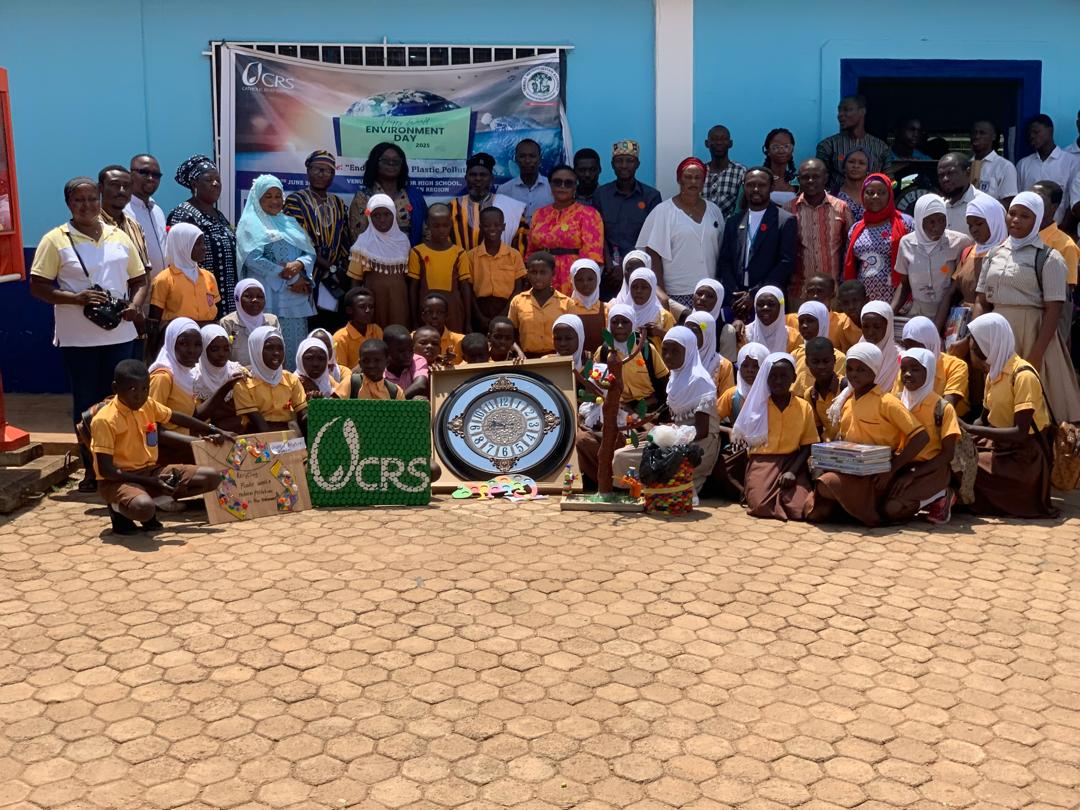Catholic Relief Services (CRS) Ghana, through its “Enhancing Access to Safely Managed WASH Services in Greater Tamale (Safe WASH)” project, has made a bold call for an end to plastic pollution in the country.
According to CRS, there is an urgent need to create awareness on the growing environmental threat posed by plastic pollution.
Speaking to the media at the back of an event to mark the 2025 World Environment Day, WASH Program Director for CRS Ghana, Festus Fofie, emphasized the need for both system-level interventions and behavioral changes in addressing plastic pollution.

“Plastic pollution poses a serious threat to our environment, health, and future. Through this event and our ongoing efforts, we aim to inspire lasting change in how our communities manage waste, especially plastics, while improving access to safe sanitation,” Mr Fofie said.
Tackling WASH Challenges in Tamale Metro
Tamale continues to grapple with critical sanitation challenges, including open defecation, indiscriminate plastic waste disposal, and weak regulation of sanitation services.
Public toilets are often poorly maintained, and access to household toilets remain limited – posing serious public health and environmental risks.

Interventions
In response, the Safe WASH Project, a three-year initiative funded and implemented by CRS Ghana, Woord en Daad, and GMB, with support from TaMA and Perfsan, is working to address these gaps by promoting access to safely managed sanitation and hygiene services.
So far, CRS Ghana’s WASH interventions in the Greater Tamale Area have contributed to the construction of over 1,000 household latrines, benefitting over 5,200 residents.
CRS has installed 72 school handwashing stations and set up three plastic waste collection and buy-back centers, contributing to the removal and recycling of about 50,000 kg of plastic from the environment.
CRS and its partners have also established 10 school WASH clubs with 198 trained peer educators, four sanitation entrepreneurs, and four sales agents have been trained to deliver affordable WASH products.
Thirteen sanitation by-laws have been reviewed, two new regulations introduced, and a sanitation revolving fund to support households and sanitation entrepreneurs, has been launched with iDE Ghana to improve access and affordability.













